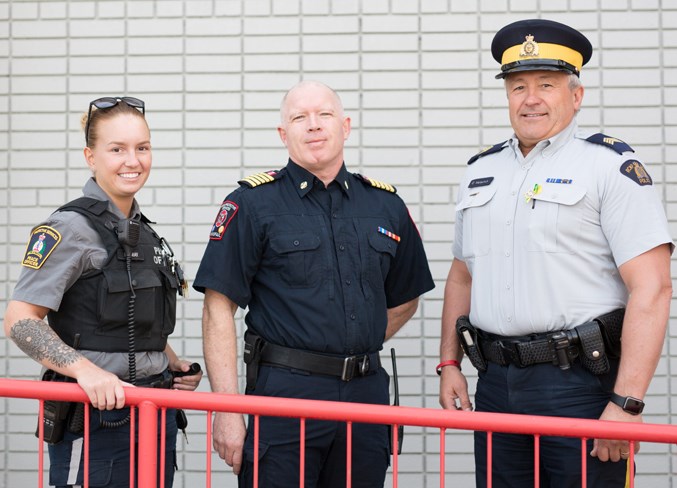INNISFAIL - The past few years have been a tough haul for the Innisfail RCMP's battle against rural and property crime, but Staff Sgt. Chris Matechuk said there have been hopeful signs this year the tide will soon decisively turn in their favour.
The local detachment's commanding officer noted with cautious optimism that property crime, including vehicle thefts, did show "some minor reductions" in the first couple of months of 2018.
And the province is creating Crime Reduction Units, which are now being staffed, to focus on rural property crime. Every district across the province will soon get its own unit, including the Innisfail RCMP's Central Alberta District.
When the Central Alberta District gets fully staffed and operational the Innisfail RCMP will be able to access its resources to better deal with problematic rural areas.
"They want to staff those positions (units) with the right members who have the background, training and knowledge to do a great job," said Matechuk, who does not know how large the unit will be other than it will be "several members. It is going to take a little time to staff but once those teams get up and running we will most definitely be working with them."
The latest crime statistics show Innisfail RCMP urgently need more help and resources to successfully push back the criminals, which in turn would restore public confidence.
Matechuk said his overall statistics for property crime, which specifically measures criminal activity in town, but are "very similar" for the rural areas, show there has been a 50 per cent increase from a year ago. Break and enters are up 88 per cent over the previous year, while motor vehicle thefts increased 78 per cent and thefts under $5,000 are up 35 per cent.
There is one statistical piece of good news for property crime. Cases of possession of stolen property are up 191 per cent.
"A lot of that can be explained by the number of recovered stolen vehicles," said Matechuk. "That is a good news stat because we are locating a lot of stolen vehicles and getting a lot of charges in that area."
In the meantime, while Matechuk waits for the extra Crime Reduction Unit resources he does have a designated rural crime liaison for rural crime watch areas.
There is also assistance from Red Deer County patrol officers, as well as from Innisfail peace officer Brandi Gray. Like the many members of the rural crime watch organizations, they too are essential "eyes and ears" in the battle against property crime.
"We are definitely eyes and ears for them. Most of our parking complaints arise as stolen vehicles. Citizens will put in a complaint to the town office stating there has been a vehicle parked for an excessive amount of days," said Gray. She said from October to the present Innisfail peace officers found between five and 10 stolen vehicles that were originally parking complaints. In most cases, said Gray, information will come back that the vehicles were "usually" stolen from rural areas.
While future resources will be enthusiastically welcomed by local Mounties, they have already implemented key crime prevention programs, as mandated by K Division to every detachment, to directly deal with the property crime epidemic.
Matechuk said the Innisfail detachment has a Habitual Offender Management Program, a two-prong initiative that includes monitoring convicted offenders to ensure they are following court orders, including curfew conditions. The second prong involves meeting with prolific offenders and offering assistance for positive change, as well as laying out the consequences if they continue criminal lifestyles.
"We will oppose release conditions or seek harsher release conditions," said Matechuk. "But the goal is primarily to determine whether the person needs addiction counselling or help from any provincial programs. We will assist them in getting the help but it has to be cooperative. They have to want it."
Matechuk said there have been success stories with the overall program, as well as from ongoing investigative work by the detachment's police officers, who are successfully collaborating with neighbouring detachments.
"We have a lot of success stories. We are no different than anybody else. Everybody else is seeing the same problems," said Matechuk. "We are hopeful once we get these crime reduction units. It is not a win or lose. We do what we can."



